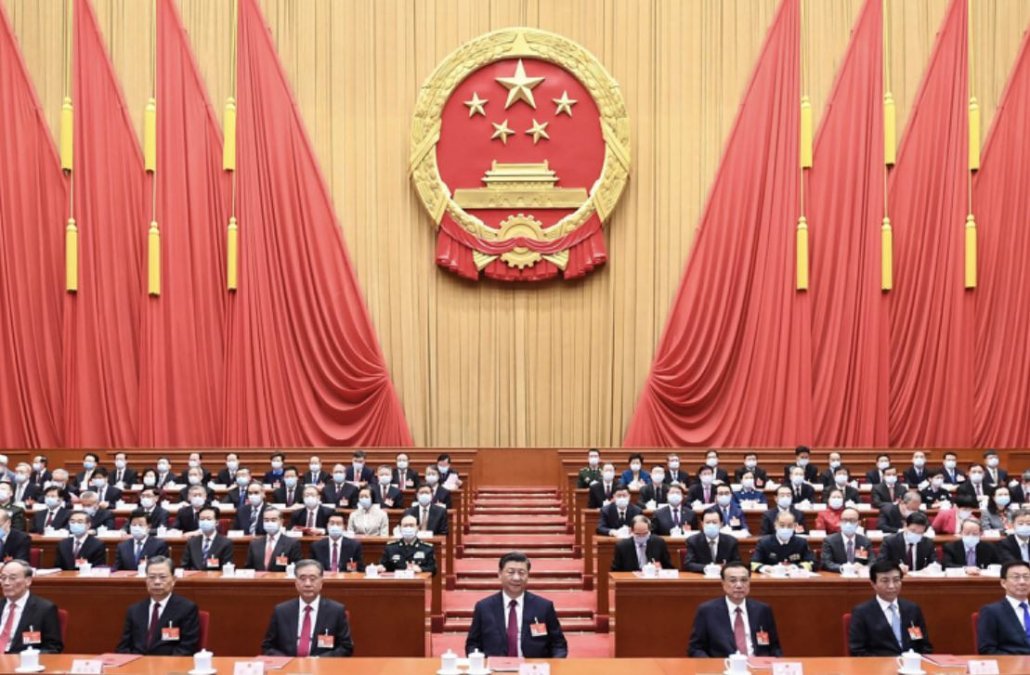Beijing’s Retreat from Tehran
Beijing’s Retreat from Tehran as Reported by Iran Gate
China’s alignment with Saudi Arabia and the Emirates in practical opposition to the Islamic Republic, especially Beijing’s defense of the UAE’s stance on Iran’s three islands, further exposed the crisis of the ‘Look East’ policy. Chinese and Saudi leaders agreed during their meeting in Riyadh to strengthen bilateral cooperation to ensure the peaceful nature of Iran’s nuclear program.
After their three-day meeting, both sides, in a joint statement, urged Iran to cooperate with the International Atomic Energy Agency and to respect the nuclear non-proliferation regime. According to Saudi Arabia’s state news agency SPA, Iran was asked to respect the principles of good neighborliness and not to interfere in the internal affairs of other countries.
China, along with Russia, is considered one of the main allies of the Islamic Republic in the nuclear dispute. In turn, this country is regarded by the Islamic Republic as a strategic ally, to the extent that Tehran signed a 25-year cooperation agreement with Beijing despite widespread domestic criticism.
According to the joint statement, China declared its support for maintaining the security and stability of Saudi Arabia and opposed any attacks on the land, interests, and citizens of this country, calling for non-interference in Saudi Arabia’s internal affairs.
Xi Jinping’s Remarks on the Strategic Depth of the Islamic Republic
According to the joint statement, China declared its support for maintaining the security and stability of Saudi Arabia and opposed any attacks on the land, interests, and citizens of this country, calling for non-interference in Saudi Arabia’s internal affairs.
Chinese President Xi Jinping, in his meeting with King Salman and Crown Prince Mohammed bin Salman of Saudi Arabia, appreciated their efforts and initiatives to end the war in Yemen and encourage dialogue among the conflicting parties in this country. Both sides emphasized the importance of supporting the Yemeni Presidential Leadership Council and the commitment of the Iranian-backed Houthis to maintaining the ceasefire.
They called on the Houthi militias to cooperate with the United Nations Special Envoy for Yemen and to seriously participate in peace initiatives to achieve a permanent and comprehensive political solution to the Yemeni crisis. Regarding Syria, both parties stressed the need to intensify efforts to reach a political solution to the crisis in this country, restore security, and end terrorism.
The statement also mentioned Lebanon, where both countries expressed their concern about the disruption of security, stability, and unity of its territories. China and Saudi Arabia consider reforms, dialogue, and consultation necessary to ensure Lebanon overcomes its crises.
According to them, these actions are necessary to prevent Lebanon from becoming a source of terrorist activities, an environment for the growth of terrorist organizations, and groups disrupting security and destabilizing the region, and a source of drug trafficking.
China and Saudi Arabia also deemed it necessary to strengthen bilateral cooperation in the field of energy and considered expanding cooperation in line with mutual interests. During this meeting, numerous contracts were signed in areas such as petrochemicals, renewable energies, information technology, digital economy, economic development, and the peaceful use of nuclear energy. The two countries also viewed deepening bilateral relations based on non-interference in each other’s internal affairs as the right path for the future of their relations.
Future Studies in Beijing on the Uncertain Future of the Islamic Republic
According to exclusive news obtained by Iran Gate from informed and diplomatic sources, future studies institutes affiliated with the Communist Party’s university in Beijing have concluded that one cannot rely on the ruling political system in Iran for at least the next seven or eight years. This research was based on intelligence data and field studies.
It seems the ruling party in China has also been convinced to act more cautiously in its relations with Tehran and not to undertake significant investments and strategic relations. However, from the recent positions of China’s president and the dispatch of a politically dismissed party official to Iran, one can clearly see Beijing’s shift and retreat.

